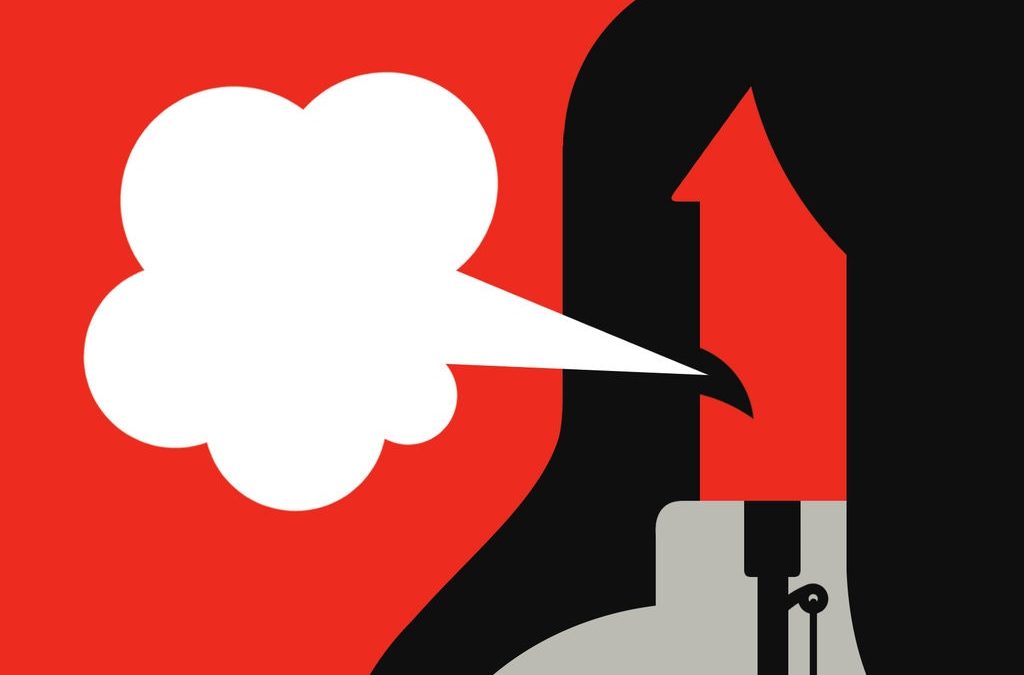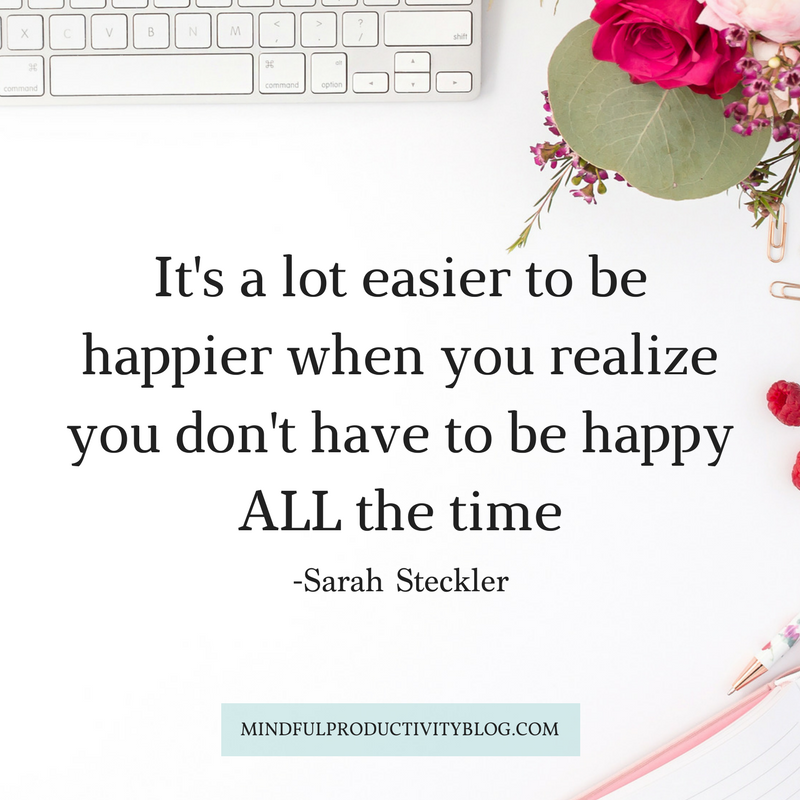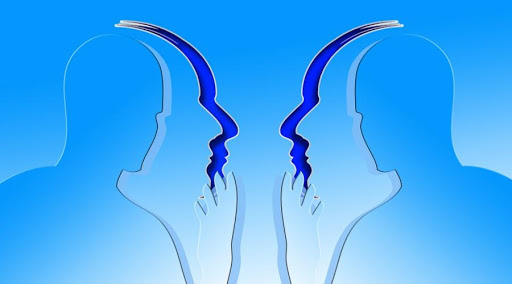
by Michael Bailey | Apr 27, 2020 | Personal Improvement, Psychology |
It’s common to use anger to deny feelings of vulnerability
 Via Psychology Today, Leon Seltzer, Ph.D.
Via Psychology Today, Leon Seltzer, Ph.D.
This is Part 1 of 3 parts. Parts 2 and 3 will be posted soon.
Part 1–Denying Vulnerability: “You’re Really Making Me Angry!”
To feel anxiety and not back away from whatever’s causing it requires marked self-control. Resisting the temptation to avoid anything we experience as threatening takes considerable courage.
We humans are so wired that the slightest perception of danger leads to feelings of vulnerability, setting into motion the impulse to flee, freeze or dissociate. And that sudden flash of trepidation can be prompted by anything that threatens our sense of control.
It could, for instance, relate to sharing ourselves personally in a way that exposes us to the other’s indifference, disapproval, or anger. When we confide our thoughts and feelings in another, we may also fear that our sharing won’t be reciprocated. Or that it could be used against us. Or that it won’t be empathized with, or validated. And our deepest sense of vulnerability arises when we find ourselves in situations that tap into primal fears of abandonment. Or evoke its opposite, engulfment–where our personal boundaries feel so threatened that we fear losing our very self.
Finally, whether our self-protective impulse to escape such situations is blindly followed or consciously withstood depends on our ability to stay calm during periods of emotional imbalance. And such composure isn’t at all “natural.” Rather, it’s a strength–or power–that we need to deliberately cultivate.
Frequently, when we stand firm in menacing situations, we’re able to do so only through the anaesthetizing emotion of anger. Getting angry with people who provoke our distress enables us to blame and negate them, and thus neutralize the uncomfortable feelings they’re causing us. But reactively becoming angry isn’t about overcoming our anxiety so much as covering it up. All we’re really doing here is masking feelings of uneasiness or insecurity by summoning up a self-vindicating sense of righteousness.
For example, when a person experienced as crucial to our welfare (say, our spouse) sharply criticizes us, we’re likely to feel threatened, our emotional equilibrium suddenly turned upside down. Very few of us can simply “sit” with the criticism, objectively evaluate its merits, and respond accordingly. On the contrary, unless we depressively slink away from our mate, we’re likely to experience a strong urge to react antagonistically–attempting to protect against the felt assault to our self-esteem by either strenuously defending ourselves or by attacking them right back. Thrown off balance by the criticism, desperate to restore a positive sense of self, we look for a way–any way–to discredit our “assailant.”
But the immediate sense of strength our defensive anger yields is finally much less like bravery than bravado. And beyond allaying our anxiety, it doesn’t solve a thing. We haven’t coped with the threatening situation by sharing honestly and directly about how it made us feel (i.e., vulnerable), but merely substituted a much less disturbing feeling to camouflage our distress. For the moment, we’ve successfully resorted to anger to quiet our fears, but this anxiety reduction has been achieved mostly at our partner’s expense. And when we get into the habit of alleviating uncomfortable feelings by getting mad at our spouse, we invariably end up creating more discord in our relationship–setting ourselves up for continuing conflict (and of course the need for more and more anger).
Power struggles in relationships are in fact mostly efforts to get our dependency needs met without ever confessing to our mate the anxiety their refusal would cause us. And typically we’re not at all conscious of how much our deepest feelings of security hinge on our partner’s positive response. Yet even if we were aware of the primal source of our relational fears and frustrations, it’s unlikely we’d be willing to take the risk of straightforwardly admitting these unmet needs–whether for attention, reassurance, empathy, support, validation, or simple warmth. The readiness to honestly and unashamedly admit these needs simply calls for more psychological courage than most of us have available.
To betray just how dependent on our spouse we were (with all the vulnerability such dependency implies) would likely only exacerbate our most secret fear that we couldn’t be sufficiently cared about–or that maybe we weren’t even worth being so cared about. And if we were actually to reveal just how much power our partner had over our feelings, how could we avoid further endangering our sense of personal safety in the relationship?
Along with our fears, most of us also feel a certain shame about divulging our dependencies. After all, as adults it’s almost always considered a virtue to be autonomous and self-reliant, whereas the mere suggestion of neediness is generally associated with being weak. So even though all of us may have quite legitimate dependency needs left over from childhood, revealing our hurt feelings when they’re not being met would expose our susceptibility to a degree that hardly seems tenable.
And so we’re far more likely to criticize our partners when they ignore or deny us–or angrily demand from them what they’ve already refused–than to openly confess feelings of deprivation. But by self-protectively reacting to them negatively and taking out our frustrations on them, we decrease yet further the chance that in the future they’ll be more inclined to provide us with the succor we may so desperately need from them.
Anger is certainly one of the most common ways we protect against feeling vulnerable (and here, note my piece, “Feeling Vulnerable? No Problem—Just Get Angry“). But how do we counteract such feelings without defaulting to the pseudo-empowering reaction of anger? When we’re feeling accused, devalued, powerless, rejected, or unloved, how do we stay in touch with the anxiety these feelings typically generate and literally think ourselves out of anxiety–eventually getting to the other side where we’re able to feel safe and okay? How, in short, can we muster the strength to deal more openly with all the things that imperil our sense of well-being?
Psychologically, accomplishing this feat of staying present and holding onto our emotional poise when it feels under siege may well be one of our greatest challenges in life. But if we can develop this ability, we’ll likely discover a sense of personal power greater than any we’ve ever experienced. And in learning how to share our hurts–and our fears of being hurt–we may at last realize our potential for emotional intimacy, one of the greatest rewards of a committed relationship.
Cultivating such an invaluable personal resource–one that may well represent the ultimate in self-control–lies in our ability to (1) self-validate, and (2) self-soothe.
NOTE 1: Part 2 of this post centers on how we can become more self-validating, while Part 3 takes up the various ways we can learn how to better soothe ourselves.
NOTE 2: For a much more recent post on why we shouldn’t resist our vulnerability, see my “How Vulnerable Should You Let Yourself Be?”
NOTE 3: To explore other posts I’ve written for Psychology Today,:please click here.
About the Author
Leon F. Seltzer, Ph.D., is a clinical psychologist and the author of Paradoxical Strategies in Psychotherapy. He holds doctorates in English and Psychology. His posts have received over 39 million views.
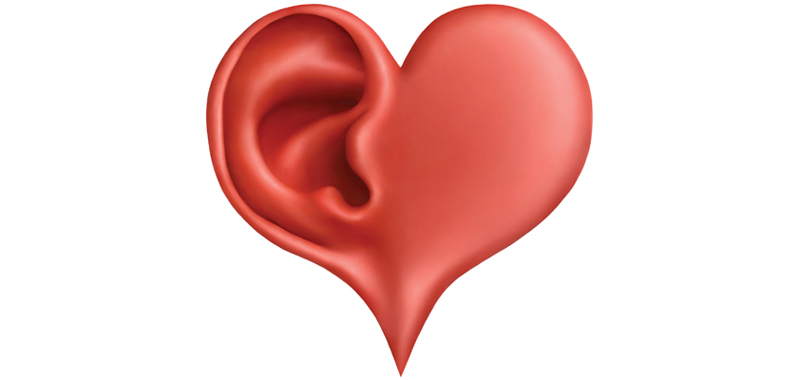
by Michael Bailey | Aug 17, 2019 | Personal Improvement, Psychology |
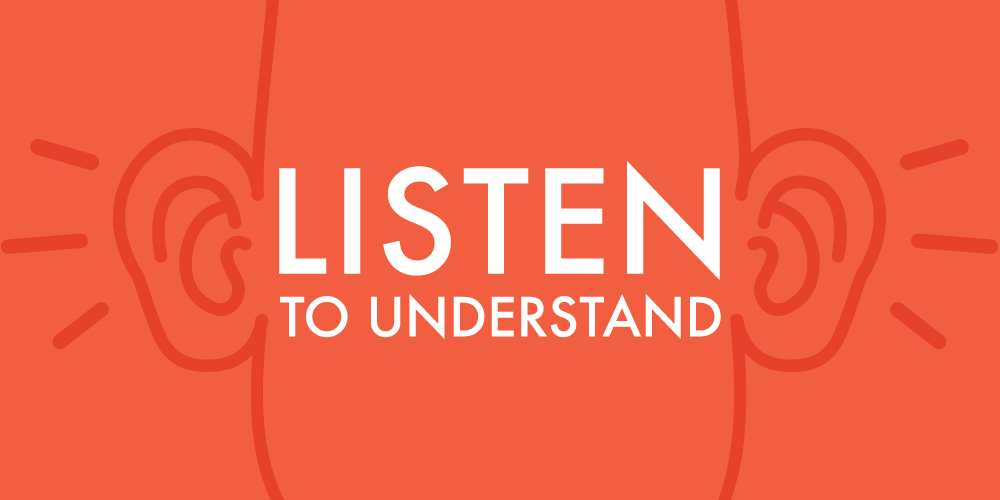
Studies have shown that those who listen have more successful relationships.
Diana Raab Ph.D., Via Psychology Today
For the most part, in all relationships there’s one person who speaks and one who listens. But . . . is the listener really listening? Many people think they’re better listeners than studies show they actually are.
The goal of deep listening is to acquire information, understand a person or a situation, and experience pleasure. Active listening is about making a conscious decision to hear what people are saying. It’s about being completely focused on others—their words and their messages—without being distracted.
It’s been said that one of the most common reasons why people see therapists is to have their stories heard. In order to have your story heard, you need to have a listener. Listening and empathy skills are the hallmarks of good communicators, leaders, and therapists. Listening skills can be learned, but the reality is, some people just tend to be better listeners than others.
The importance of listening in interpersonal relationships cannot be overemphasized. One study conducted by Faye Doell (2003) showed that there are two different types of listening: “listening to understand” and “listening to respond.” Those who “listen to understand” have greater satisfaction in their interpersonal relationships than others. While people may think they might be listening to understand, what they’re really doing is waiting to respond.
And, when individuals try to “fix” other people, they are most often responding to their own need to influence. The same study showed that couples who have undergone therapy together tend to be better listeners than others because they’ve picked up some valuable tips along the way. It’s been said that women usually want to be heard, and men want to fix or respond.
According to psychologist Carl Rogers, active or deep listening is at the heart of every healthy relationship. It’s also the most effective way to bring about growth and change. Those who are heard tend to be more open, more democratic in their ways, and are often less defensive. Good listeners refrain from making judgments, and provide a safe environment and container for speakers.
By listening carefully when someone speaks, we’re telling them that we care about what they’re saying. It’s also important to remember that listening is contagious. When we listen to others, then chances are they will be more inclined to listen to us.
The good news is that we can learn to be better listeners; however, listening takes practice. The more we do it, the better we get at it, and the more positive our interpersonal relationships will be. As Jon Kabat-Zinn says in his book Wherever You Go You Are There, everything takes practice. We need to just keep at it.
Here are some tips for becoming a better listener:
- Put yourself inside the mind of the speaker.
- Listen for meaning.
- Pay attention to body language.
- Cultivate empathy.
- Avoid making judgments.
- Look into others’ eyes when they’re speaking.
- Pay attention to the feelings associated with the words.
- Notice the speaker’s tone and inflection.
- Repeat in your own words what someone has told you (empathetic reflection).
- Acknowledge that you’re listening by nodding or saying “Uh-huh.”
- Occasionally summarize others’ comments when given the chance.
References
Doell, F (2003). “Partners’ listening styles and relationship satisfaction: listening to understand vs. listening to respond.” Graduate thesis. The University of Toronto Psychology Dept
Grogan, J. (2013). “It’s not enough to listen.” Psychology Today. March 11.
Kabat-Zinn, J. (1994). Wherever You Go You Are There. New York, NY: Hyperion.
Rogers, C. R. & R. E. Farson. (1987). “Active Listening.” Communicating in Business Today. New York: D.C. Heath & Co.

by Michael Bailey | Jul 22, 2019 | Life & Timing, Personal Improvement, Psychology |

I like who I am. I don’t have major issues of character or personality problems. I’m guilty of no great transgressions, emotional assaults, nor profound negative behavior towards anyone in my life. Certainly nothing consciously deliberate. I think I am a pretty damn decent good person.
The enduring struggles and areas in my life that could use improvement are things I clearly recognize and don’t like about myself, nor my trajectory to date. Being introspective from adolescence, its always been tough absorbing my own levels of self generated personal critique, Still, to survive with any sense of emotional stability, and to avoid damaging depression, I’ve had to forgive myself as I move along life’s timeline. I really have no choice if I want to maintain purposeful self esteem going forward.
I try to space out these type of posts as follows below. There are more than enough of self help lectures out there for all of us, but this particular offering speaks to me right now..
If you’re struggling with anything, or many things, and find yourself slipping into guilt, lack of self worth, or repressing important feelings due to fear of judgement, or rejection from others, try reading the content that follows written by Sarah Steckler, who I randomly discovered recently.
From her pics and limited background info, Sarah seems remarkably young to have the insight she presents here. So much so, that I actually consider/ed her being a marketing prop to pull traffic and business from the target demographic she represents. Is this far fetched? Maybe. Maybe not. Nothing is beyond online dishonesty these days. Nothing. So why not this?
But, here’s the thing. what’s written here, whether by Sarah, or someone else behind her, is good stuff. Its valuable. That matters. If you need something, someone, to help you feel okay about yourself, try reading.
Post below copied from Mindful Productivity Blog
Why I no longer focus on gratitude lists or being more “positive”
Oh the controversy!
Gratitude lists are everything right now.
Feeling blue?
Write down 3 things you’re grateful for
Really upset about something?
Focus on the positive and everything you DO have
Research studies like this one have even proved that we can rewire our brains by thinking more positive thoughts.
So why on earth am I writing a blog post / rant about something that’s been scientifically PROVEN to be beneficial to us?
Like most people I’ve been through a slew of ups and downs, horrible experiences, terrible times, really low lows, and some really high highs, but I’ve noticed something about the way others treat me through all of these – and how we react to others when they aren’t being positive, grateful, and “spreading love and light” all over social media.
We seem to have this visceral reaction to negative things.
So much so that websites and even news organizations have devoted themselves to “good” and “positive” only stories.
This isn’t a bad thing especially when mainstream media and news can tend to err on the side of doomsday stories.
We all need a little reminder that the humanity side of things still exists and that not everything is going completely wrong.
The issue is that we’ve taken a full swing into a dangerous territory. There’s a sense of safety and comfort in only listening to the good, focusing on the positive, and quite frankly, avoiding the negative, and sometimes even avoiding the reality of things.
And chances are that you’ve experienced this or been a part of the problem (don’t worry, I have, too).
Post anything positive and inline with what “mainstream happiness” might look or feel like and the likes will POUR in.
Get real with something, express frustration, and people get uncomfortable.
In fact, we get so uncomfortable with other people’s “negativity” that we start shaming them in indirect ways.
We say things like:
-
“Look at the bright side”
-
“This won’t matter in 5 years so don’t worry about it now”
-
“You should be more positive”
-
“You really have nothing to complain about”
-
“Be grateful for what you have”
All of these comments tend to come from a good place. But for a moment let’s examine the root of where they exist.
They are ego driven. Meaning we typically want other people to feel better not because of their situation but more often because their negativity, or the ways in which they are sharing their personal experience is uncomfortable to us.
I lost my Dad when I was 23 and for the 8 or so months following his death I went on a positivity rampage. I pushed all of my pain, anger, and fear aside and decided to make it my mission to show anyone and everyone that death doesn’t have to mean sadness.
I lost 50lbs, I went out with friends non-stop, I posted endless Pinterest quotes and told everyone that everyday they have a choice to feel happy.
And for a while it worked…. kind of.
The trouble began when I realized that I was suppressing certain emotions, I was “dealing” with my grief instead of experiencing it and allowing it.
-
I broke out in hives anytime I was alone from the stress and grief alone and quickly took benadryl and returned to Pinterest land to make them go away.
-
I endured extreme stomach pains and had a hard time eating for months after his death and instead of really diving deep into the pain, I told myself to be stronger and drank bottles of Pepto.
Here’s the thing about human emotions, they exist and one isn’t any better than the other.
Also, all of them are fleeting so saying things like “happiness is a choice” is silly in a lot of ways because that choice often results in the denial of other emotions that are present.
It’s a lot like saying “holding your breath is a choice” – you can hold your breath right now, anytime really. When you’re sad when you hear something you don’t like, when you stub your toe, when someone dies. It’s always your choice to do so but you’re also cutting off your oxygen supply and you can’t do it forever.
There are some great ways to reframe things and gratitude plays an important role in creating more sustainable happiness in our lives but if it’s done in a way that excludes all of the other endless human emotions and experiences, you’re doing yourself a disservice.
It’s really hard to run while holding your breath and it’s really hard to move through grieve, adapt to change, and work through frustration if you try to sugarcoat it with striving to choose happiness over giving yourself permission to feel various emotions, thoughts, and feelings.
My husband and I move a great deal. I’ve moved over 17 times in the past 10 years. Every time we experience change, remove someone from our lives, and someone new, try something new, start a new job, move to a new part of the country, or out of the country for that matter, our mind, body, and soul needs time to adjust.
Heck even if you never move, life will present situations and circumstances that put you outside of your comfort zone.
And when those things happen and all you hear is “be more positive” or “keep your newsfeed clear or negative things” it becomes increasingly isolating and depressing to try and navigate.
I see this happen often. The people that post the good things and never share the bad. Not just on their Facebook account but in real life. We think that people will only value our existence or welcome our presence if we’re always positive, if we never complain, if we always have something good to share and bring to the conversation.
True happiness isn’t the act of choosing to be happy, it’s the art and allowance of accepting human emotions, observing them, and being okay with them being a part of our lives.
Emotions are beautiful signs and signals from our bodies and minds. They let us know when boundaries are being pushed that we didn’t know existed. They alert us to pain that still needs to be taken care of, soothed, and mended. They remind us that suffering and sadness are just as much a part of existing as joy, compassion, and love.
Which brings me to some major myths and assumptions we make all the damn time:
Myth #1: If you have something good, you can’t have something bad
Just because you have things to be grateful for doesn’t mean you can’t have things that feel off, upsetting, uncomfortable, or not aligned with what you truly want.
Myth #2: If you have something that someone else doesn’t, you should never complain
After losing my Dad I had people apologize to me when they’d complain or mention their alcoholic father, or the lack of relationship with their Dad. They’d say things like “shit I’m sorry, here I am complaining about my Dad and he’s still alive.
I would say “just because your Dad is still alive doesn’t mean you can’t experience grief from your relationship with him, and it also doesn’t mean your feelings aren’t valid.”
Myth #3: The best way to feel better is to focus on the positive
While there are solid and scientifically founded ways of creating neural pathways in your brain that habitually lean toward the positive, the only way out of things is through them.
Your broken leg won’t heal by merely wishing it to do so (although maybe a bit faster – who knows). Incorporating the positive can definitely boost your experience, but focusing on the positive and ignoring the rest takes away the experience of learning how to cope, adapt, and improve on handling difficult emotions and circumstances.
(Susan David talks more about the “tyranny of positivity” and her book Emotional Agility here)
Myth #4: If you’re not happy, something is wrong with you
There’s such a big push for happiness these days. Endless books on how to be happier, how to be a certain % happier, how to be happier in different locations. And while I won’t discredit the merit within those books and that many of those things do in fact help and improve life, it can start to make you feel like there’s something wrong with you if you’re not happy.
How often do you hear yourself saying “I just feel so off, I don’t know what’s wrong with me!”
Hint: Nothing is wrong with you. You’re a human being who is human being, feeling, and experiencing.
I’m guilty of this too, though. We assume that feeling upset, irritable, aggravated, or less than stellar means we’re doing something wrong. I have so much to be grateful for, how in the world could I ever feel anything but happy?!
Yet we don’t ask ourselves the same question for other emotions.
:: I’m not angry today! What is wrong with me?
:: I’m not crying right now, what did I do?!
Happiness is an emotion NOT a destination.
Striving for endless happiness will in fact, make you more unhappy. Being in denial that other emotions and human experiences exist will make you endlessly miserable.
Myth #5: If you’re not happy, you’re choosing it
I really don’t know if there’s a sentiment I hate more than “choose happiness” – it sounds so easy, so fluffy, and so naive.
I’m sure people will disagree with me.
I know there are ways to “manifest” abundance and happiness.
But if you think for one moment that if you’re not happy, it’s your choice, you’re forgetting about the fact that the world also does happen TO you.
And yes I’m pushing back on this. I’ve read endless books about how the universe is always happening “for” us. Shifting your perspective can make a huge difference and I truly believe I’ve manifested many things in my life.
However, a lot of people take this to another extreme where they think that if anything bad happens it’s their fault. Or that they “attracted” it.
Self-fulfilling prophecy is a hell of a lot different than tragedy, psychopaths, and circumstances that flat out suck. In other words, thinking you can’t do something and then not trying is a way of “attracting” a result or lack of one whereas someone being an asshole or hitting your car is a circumstance and an event.
This could be a whole other blog post. My point is that we cannot choose our emotions. They happen, what we can choose is how we react to them. So in a nutshell, you cannot choose happiness, but you can choose how you react to emotions that lead to a more fulfilling life.
It’s a matter of prolonging a state of mind when we feel good and observing, resolving, and letting go of things when they don’t serve us.
Myth #6: If it won’t matter 5 years from now, it shouldn’t matter now
I’ve started saying this more lately and then realized how shitty it can sound on the other end. There are definitely things that don’t need to be complained about. Small things, things you CAN choose to let go of that don’t involve ignoring signals from your psyche. Like some jerk cutting in front of you in line.
But then there are things that in the present moment really DO suck and that require time to process, that sometimes mean sharing that experience, and that become a lot more difficult when others tell us we shouldn’t be feeling it or expressing it.
This act by the way, of people telling others to “be more positive” or “think about how they attracted something” or my all time favorite “I’m so sorry for your loss but they are in a better place now” is called Light Washing or whitewashing negative thoughts. It’s a pretty shitty way of victim blaming especially when people are going through heavy emotions, tragic events, or need time to process.
I bring this up not because I think everyone who says these cliche statements is an A-hole (I’ve said them, too) but because we need to raise awareness that there’s a collective fear of the negative when really it’s just the human experience and it’s not all that bad.
I’ve said things before like “fear doesn’t serve us” when really it actually…DOES. So does guilt, anger, resentment, and so forth. The key is knowing HOW to observe them, how long to stay with them, and learning how to navigate them instead of letting them take over the steering wheel.
So what do I do instead of endless gratitude lists?
For the record I do still write down things I’m grateful for and I do still reframe “negative” things.
But instead of sugar coating them with positivity or ignoring the difficult things, I get real with the reality of all of them.
Here’s my process: (something I’ve been doing since I was 10 years old, seriously, although I didn’t call it a *$&% it list” back then)
1 Write a “Fuck it” list
Sometimes these lists get REALLY long. I list out things that really bother me, things I can’t seem to get un-angry about, things I wish would change, things I don’t like about my current situation, new place of residence, or how I’m being treated. I go WILD, no apologies, no worry over feeling guilty about being so “negative” – I just let it ALL out.
2 Cross off things I can immediately let go of after acknowledging them
After going through this process I feel lighter, more at ease, and after a few minutes of huffing and puffing I have a solid awareness of what I can really let go of and what really doesn’t matter. In other words, things I don’t have to give a fuck about or give any more mental energy to.
3 Highlight the things that REALLY still bug me
Some things aren’t so easy to let go of. I highlight these.
4 Make a sub list of what I can do about the things that stick
From here I take the top 3 things that are really pissing me off (that I still GAF about) and write down ways I can feel better or things I can do to take ACTION toward improving them.
This does a few things:
-
It puts me back into a state of empowerment
-
It gives me the power of choice and decisiveness which reduces overwhelm
-
It shows me what’s possible and takes away most feelings of defeat or helplessness

by Michael Bailey | May 13, 2019 | Personal Improvement, Psychology |

Our individualistic culture inflames the ego and numbs the spirit. Failure teaches us who we are.
Via NYTimes, By David Brooks
Mr. Brooks is an Opinion columnist. This essay is adapted from his forthcoming book, “The Second Mountain: The Quest for a Moral Life.”
April 6, 2019
Many of the people I admire lead lives that have a two-mountain shape. They got out of school, began their career, started a family and identified the mountain they thought they were meant to climb — I’m going to be an entrepreneur, a doctor, a cop. They did the things society encourages us to do, like make a mark, become successful, buy a home, raise a family, pursue happiness.
People on the first mountain spend a lot of time on reputation management. They ask: What do people think of me? Where do I rank? They’re trying to win the victories the ego enjoys.
These hustling years are also powerfully shaped by our individualistic and meritocratic culture. People operate under this assumption: I can make myself happy. If I achieve excellence, lose more weight, follow this self-improvement technique, fulfillment will follow.
But in the lives of the people I’m talking about — the ones I really admire — something happened that interrupted the linear existence they had imagined for themselves. Something happened that exposed the problem with living according to individualistic, meritocratic values.
Some of them achieved success and found it unsatisfying. They figured there must be more to life, some higher purpose. Others failed. They lost their job or endured some scandal. Suddenly they were falling, not climbing, and their whole identity was in peril. Yet another group of people got hit sideways by something that wasn’t part of the original plan. They had a cancer scare or suffered the loss of a child. These tragedies made the first-mountain victories seem, well, not so important.
Life had thrown them into the valley, as it throws most of us into the valley at one point or another. They were suffering and adrift.
Some people are broken by this kind of pain and grief. They seem to get smaller and more afraid, and never recover. They get angry, resentful and tribal.
But other people are broken open. The theologian Paul Tillich wrote that suffering upends the normal patterns of life and reminds you that you are not who you thought you were. The basement of your soul is much deeper than you knew. Some people look into the hidden depths of themselves and they realize that success won’t fill those spaces. Only a spiritual life and unconditional love from family and friends will do. They realize how lucky they are. They are down in the valley, but their health is O.K.; they’re not financially destroyed; they’re about to be dragged on an adventure that will leave them transformed.
They realize that while our educational system generally prepares us for climbing this or that mountain, your life is actually defined by how you make use of your moment of greatest adversity.
So how does moral renewal happen? How do you move from a life based on bad values to a life based on better ones?
First, there has to be a period of solitude, in the wilderness, where self-reflection can occur.
“What happens when a ‘gifted child’ finds himself in a wilderness where he’s stripped away of any way of proving his worth?” Belden Lane asks in “Backpacking With the Saints.” What happens where there is no audience, nothing he can achieve? He crumbles. The ego dissolves. “Only then is he able to be loved.”
That’s the key point here. The self-centered voice of the ego has to be quieted before a person is capable of freely giving and receiving love.
Then there is contact with the heart and soul — through prayer, meditation, writing, whatever it is that puts you in contact with your deepest desires.
“In the deeps are the violence and terror of which psychology has warned us,” Annie Dillard writes in “Teaching a Stone to Talk.” “But if you ride these monsters deeper down, if you drop with them farther over the world’s rim, you find what our sciences cannot locate or name, the substrate, the ocean or matrix or ether which buoys the rest, which gives goodness its power for good, and evil its power for evil, the unified field: our complex and inexplicable caring for each other.”
In the wilderness the desire for esteem is stripped away and bigger desires are made visible: the desires of the heart (to live in loving connection with others) and the desires of the soul (the yearning to serve some transcendent ideal and to be sanctified by that service).
When people are broken open in this way, they are more sensitive to the pains and joys of the world. They realize: Oh, that first mountain wasn’t my mountain. I am ready for a larger journey.
Some people radically change their lives at this point. They quit corporate jobs and teach elementary school. They dedicate themselves to some social or political cause. I know a woman whose son committed suicide. She says that the scared, self-conscious woman she used to be died with him. She found her voice and helps families in crisis. I recently met a guy who used to be a banker. That failed to satisfy, and now he helps men coming out of prison. I once corresponded with a man from Australia who lost his wife, a tragedy that occasioned a period of reflection. He wrote, “I feel almost guilty about how significant my own growth has been as a result of my wife’s death.”
Perhaps most of the people who have emerged from a setback stay in their same jobs, with their same lives, but they are different. It’s not about self anymore; it’s about relation, it’s about the giving yourself away. Their joy is in seeing others shine.
In their book “Practical Wisdom,” Barry Schwartz and Kenneth Sharpe tell the story of a hospital janitor named Luke. In Luke’s hospital there was a young man who’d gotten into a fight and was now in a permanent coma. The young man’s father sat with him every day in silent vigil, and every day Luke cleaned the room. But one day the father was out for a smoke when Luke cleaned it.
Later that afternoon, the father found Luke and snapped at him for not cleaning the room. The first-mountain response is to see your job as cleaning rooms. Luke could have snapped back: I did clean the room. You were out smoking. The second-mountain response is to see your job as serving patients and their families. In that case you’d go back in the room and clean it again, so that the father could have the comfort of seeing you do it. And that’s what Luke did.
If the first mountain is about building up the ego and defining the self, the second is about shedding the ego and dissolving the self. If the first mountain is about acquisition, the second mountain is about contribution.
On the first mountain, personal freedom is celebrated — keeping your options open, absence of restraint. But the perfectly free life is the unattached and unremembered life. Freedom is not an ocean you want to swim in; it is a river you want to cross so that you can plant yourself on the other side.
So the person on the second mountain is making commitments. People who have made a commitment to a town, a person, an institution or a cause have cast their lot and burned the bridges behind them. They have made a promise without expecting a return. They are all in.
I can now usually recognize first- and second-mountain people. The former have an ultimate allegiance to self; the latter have an ultimate allegiance to some commitment. I can recognize first- and second-mountain organizations too. In some organizations, people are there to serve their individual self-interests — draw a salary. But other organizations demand that you surrender to a shared cause and so change your very identity. You become a Marine, a Morehouse Man.
I’ve been describing moral renewal in personal terms, but of course whole societies and cultures can swap bad values for better ones. I think we all realize that the hatred, fragmentation and disconnection in our society is not just a political problem. It stems from some moral and spiritual crisis.
We don’t treat one another well. And the truth is that 60 years of a hyper-individualistic first-mountain culture have weakened the bonds between people. They’ve dissolved the shared moral cultures that used to restrain capitalism and the meritocracy.
Over the past few decades the individual, the self, has been at the center. The second-mountain people are leading us toward a culture that puts relationships at the center. They ask us to measure our lives by the quality of our attachments, to see that life is a qualitative endeavor, not a quantitative one. They ask us to see others at their full depths, and not just as a stereotype, and to have the courage to lead with vulnerability. These second-mountain people are leading us into a new culture. Culture change happens when a small group of people find a better way to live and the rest of us copy them. These second-mountain people have found it.
Their moral revolution points us toward a different goal. On the first mountain we shoot for happiness, but on the second mountain we are rewarded with joy. What’s the difference? Happiness involves a victory for the self. It happens as we move toward our goals. You get a promotion. You have a delicious meal.
Joy involves the transcendence of self. When you’re on the second mountain, you realize we aim too low. We compete to get near a little sunlamp, but if we lived differently, we could feel the glow of real sunshine. On the second mountain you see that happiness is good, but joy is better.
David Brooks has been a columnist with The Times since 2003. He is the author of “The Road to Character” and the forthcoming book, “The Second Mountain.” @nytdavidbrooks

 Via Psychology Today, Leon Seltzer, Ph.D.
Via Psychology Today, Leon Seltzer, Ph.D.


